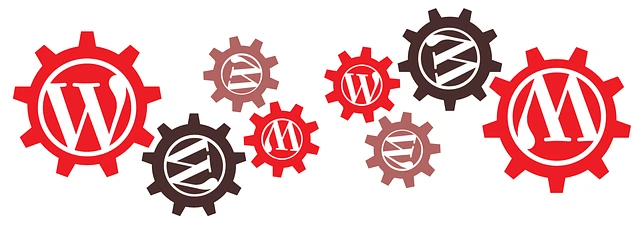وردپرس یک پلتفرم قدرتمند است، که تا حدودی به لطف افزونههای گستردهاش است که عملکرد را گسترش داده و تجربه کاربری را بهبود میبخشند. با این حال، اضافه کردن افزونههای زیاد یا افزونههایی که کدنویسی ضعیفی دارند، میتواند بر عملکرد وبسایت تأثیر منفی بگذارد. وبسایتهای کند، کاربران را ناامید میکنند و تأثیر مخربی بر رتبهبندی موتورهای جستجو دارند. در این مقاله وبلاگ، نکات ضروری و بهترین شیوههای جلوگیری از کند شدن وردپرس را بررسی خواهم کرد. میخواهم مطمئن شوید افزونههای وردپرس عملکرد وبسایت شما را به خطر نمیاندازند.

فهرست مطالب
ترجیح کیفیت به کمیت برای جلوگیری از کند شدن وردپرس
وقتی صحبت از افزونهها میشود، تعداد بیشتر همیشه بهتر نیست. با انتخاب افزونههای معتبر و دارای بررسی خوب از منابع معتبر مانند مخزن افزونههای وردپرس، کیفیت را بر کمیت اولویت دهید. هر افزونه را با دقت بررسی کنید تا مشخص شود که آیا با نیازهای وبسایت شما همسو است و سابقه بهروزرسانی و پشتیبانی منظم دارد یا خیر.
افزونههای سبک وردپرس را انتخاب کنید
افزونههای سبکی را انتخاب کنید که حداقل تأثیر را بر منابع وبسایت شما داشته باشند. افزونههایی که اسکریپتها، استایلها یا فایلهای خارجی اضافی غیرضروری را بارگذاری میکنند، میتوانند سرعت وبسایت شما را به میزان قابل توجهی کاهش دهند. افزونههایی را انتخاب کنید که با در نظر گرفتن عملکرد طراحی شدهاند و به خاطر صرفهجویی در منابع شهرت دارند. برای اطلاعات بیشتر در مورد انتخاب افزونهها، این مقاله را بخوانید: نکاتی در مورد نحوه انتخاب افزونههای مناسب وردپرس
ارزیابی عملکرد افزونه برای جلوگیری از کند شدن وردپرس
قبل و بعد از نصب یک افزونه جدید، تستهای عملکرد کاملی انجام دهید تا تأثیر آن را بر سرعت بارگذاری وبسایت خود اندازهگیری کنید. ابزارهایی مانند Google PageSpeed Insights یا GTmetrix میتوانند بینشهای ارزشمندی در مورد معیارهای عملکرد سایت شما ارائه دهند. آنها به شما این امکان را میدهند که مشخص کنید کدام افزونهها ممکن است باعث کندی شوند.
افزونههای وردپرس را بهروز نگه دارید
افزونههای قدیمی ممکن است حاوی آسیبپذیریها یا مشکلات سازگاری باشند که میتوانند وبسایت شما را کند کنند. به صورت مرتب تمام افزونههای خود را به آخرین نسخهها بهروزرسانی کنید. توسعهدهندگان اغلب بهروزرسانیهایی را برای رفع اشکالات، نقصهای امنیتی و بهبود عملکرد منتشر میکنند.
عملکرد وبسایت را به صورت مرتب رصد کنید
نظارت مداوم بر عملکرد وبسایت شما بسیار مهم است. از ابزارهایی مانند گوگل آنالیتیکس یا افزونههای وردپرس که سرعت وبسایت و سایر معیارهای کلیدی عملکرد را رصد میکنند، استفاده کنید. شناسایی و رسیدگی سریع به مشکلات عملکرد میتواند از مشکلات مهمتر در آینده جلوگیری کند.
محدود کردن تعداد افزونههای فعال وردپرس
اگرچه هیچ تعداد جادویی افزونه برای همه وبسایتها وجود ندارد. بهطورکلی ایده خوبی است که تعداد افزونههای فعال را به حداقل برسانید. فقط از افزونههایی استفاده کنید که هدف مهمی را دنبال میکنند. در نظر بگیرید که آیا یک افزونه میتواند چندین عملکرد را انجام دهد یا خیر، بهجای اینکه برای هر کار، افزونههای جداگانه داشته باشید.
نتیجهگیری
اطمینان از اینکه افزونههای وردپرس تأثیر منفی بر عملکرد وبسایت شما ندارند، برای ارائه یک تجربه کاربری روان و لذتبخش حیاتی است. با انتخاب افزونههای باکیفیت، بهروزرسانی منظم آنها و نظارت بر عملکرد وبسایت خود، میتوانید زمان بارگذاری بهینه را حفظ کرده و بازدیدکنندگان را برای بازدید بیشتر ترغیب کنید. به یاد داشته باشید، فقط آنچه وبسایت شما ارائه میدهد مهم نیست، بلکه میزان کارایی آن در ارائه خدمات است که شما را از رقبا در چشمانداز دیجیتال پرشتاب امروزی متمایز میکند.

دیدگاهتان را بنویسید